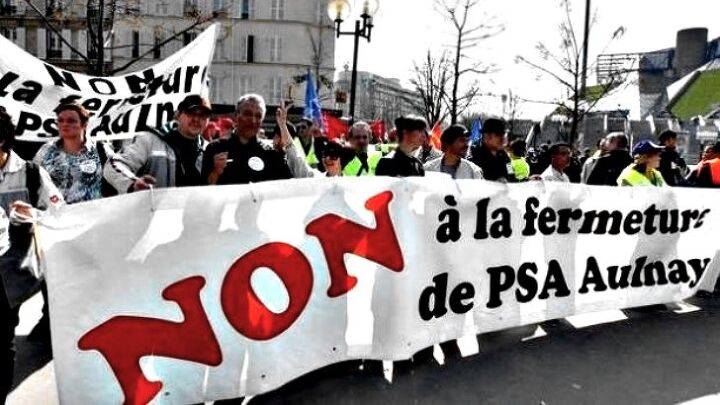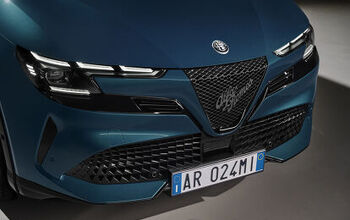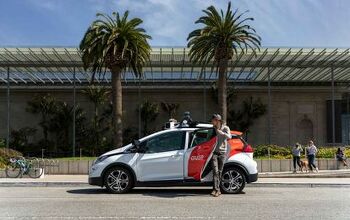Decades After Bringing Workers To France, Jobs Go Back To Africa While France's Promise Disappears
The establishment of a new manufacturing base in North Africa has fascinated me for the past couple months – though few others seem to really care. The leader in this movement has been Renault, which is setting up plants in Morocco and Algeria to build their popular, low-cost Dacia vehicles in factories where employees earn a fraction of what a French assembly line worker would make.
PSA doesn’t have a low-cost brand of it’s own, so jobs haven’t gone across the Strait of Gibraltar – yet. But the closing of the Aulnay plant, where a massive contingent of North African immigrants (now French citizens) work, is a compelling snapshot of the socioeconomic and racial dynamics of France that happens to intersect with the auto industry.
Volumes have been written on France’s North African population and their integration (or lack thereof) into French society. In the broader scope, the story of Aulnay will be a footnote, but for the workers whom Citroen recruited directly in the early 1970’s, building cars is all they have known since they left the Maghreb.
The North African workers were recruited for the age-old reason that continually draws economic immigrants looking for a better life; the natives consider themselves above such labor. Citroen, which owned the factory at the time, wanted to avoid hiring native French workers, which they felt were tainted by Marxist views on labor relations. One Arab worker delivered an invective that wouldn’t sound out of place on a Rush Limbaugh program, stating
In what would be emblematic of the social problems that exist in contemporary France, Citroen and other automakers domiciled the new immigrants in bleak, high-rise projects, like Cite des 3000, where “…80 percent of the dads work for PSA.” Aulnay and Cite des 3000 was one of the sites of the infamous 2005 riots in Paris, where North African youths clashed violently with police.
Unionization at Aulnay was generally sympathetic to PSA, which kept a tight lid on the CGT, a radical Marxist organization that takes a hard-line adversarial approach to management. The CGT was generally credited with improving working conditions at the plant, but still represents only 40 percent of the workforce.
The CGT, for all its outdated views, can’t shoulder the blame entirely. French President Francois Hollande made reference to PSA’s “strategic choices which have not been good” – Peugeot is lacking in the small cars that once made them great, while Citroen is no longer making the DS, just premium small cars that bear those two letters, with none of the groundbreaking looks or technology that gave the original DS such prestige.
Everything in the middle – precisely what PSA builds – is being decimated, while the low and high end segments are thriving. And rival automaker Renault is having a field day with their low cost Dacia brand. Dacia vehicles, like the Duster SUV and Lodgy minivan are winning critical and commercial acclaim everywhere from India to England – Renault has slashed their British lineup dramatically, leaving only the Renaultsport performance cars and a couple other models, to make room for the bargain-priced Dacias.
And in a twist of poetic justice, the Dacias, which some French observers have cited as a threat to the domestic car industry, are being built in North Africa, by the former countrymen of the first generation Aulnay workers, for a fraction of the wages that Renault would pay to a French worker. The 1,800 euro a month salary is by no means a fortune, but it is a ticket to a middle class life, decent housing and the benefits of the French welfare state. For an ethnic minority in a country where one’s best hope is a middling civil service job, working in a car factory is a highly coveted position, which makes the prospect of an African assembly base, capable of exporting 85 percent of its 400,000 unit capacity, even more threatening.
While CGT leaders and even former President Nicolas Sarkozy have come out against the African plants, there’s no escaping that the low cost cars are the right product at the right time; current economic conditions make car purchases particularly unappealing, and if one can purchase a vehicle as good as a Scenic or Kangoo for a fraction of the cost, then why not? Of course, the Lodgy and Duster can only be priced this way because the 250 euro a month salary makes the cars unaffordable for the Moroccan workers that build them. Unfortunately, it’s looking more and more like the French system that enabled the cradle-to-grave package that came with building cars is equally out of reach.
More by Derek Kreindler
Latest Car Reviews
Read moreLatest Product Reviews
Read moreRecent Comments
- InCogKneeToe Wow, memories. My Parents have a Cabin on a Lake, I have a Plow Truck and Friends, access to Lumps (old tired autos). What happens? Ice Racing!. The only rules were 4 cylinder, RWD only. Many Chevettes were destroyed, My Minty 1975 Acadian Hatch Auto with 62,000kms, did also. Rad, Rad Housing etc. My answer, a 1974 Corolla Hatch 4 speed, the rest of the Vettes took offence and Trashed the Yota. It was so much quicker. So rebuttal, a 1975 Celica GT Notch, 2.2L 20R, 5 Speed. Needed a New Pressure ate but once that was in, I could Lap the Vettes, and they couldn't catch me to Tag me.
- 28-Cars-Later I'm not sure when it was shot, but I noticed most shots featuring a Ford are pushing the BEV models which haven't sold well and financially kicked the wind out of them. Is it possible they still don't get it in Dearborn, despite statements made about hybrids etc.?
- ToolGuy I watched the video. Not sure those are real people.
- ToolGuy "This car does mean a lot to me, so I care more about it going to a good home than I do about the final sale price."• This is exactly what my new vehicle dealership says.
- Redapple2 4 Keys to a Safe, Modern, Prosperous Society1 Cheap Energy2 Meritocracy. The best person gets the job. Regardless.3 Free Speech. Fair and strong press.4 Law and Order. Do a crime. Get punished.One large group is damaging the above 4. The other party holds them as key. You are Iran or Zimbabwe without them.


































Comments
Join the conversation
The UAW gave some Bubba/Sissy the opportunity to live a middle class life. Send the kids to college, buy a boat, go on a nice vacation middle class. Just my observations; not wanting to debate the UAW, that's worthy of several columns. Plus some really nice discounts on their rides.
Well written article, but there's a minor mistake - only the Lodgy is built in Morocco, the Duster is built in Romania, by workers paid 500 euros a month. Double than what the Moroccans get, but still low enough to make these cars low priced.